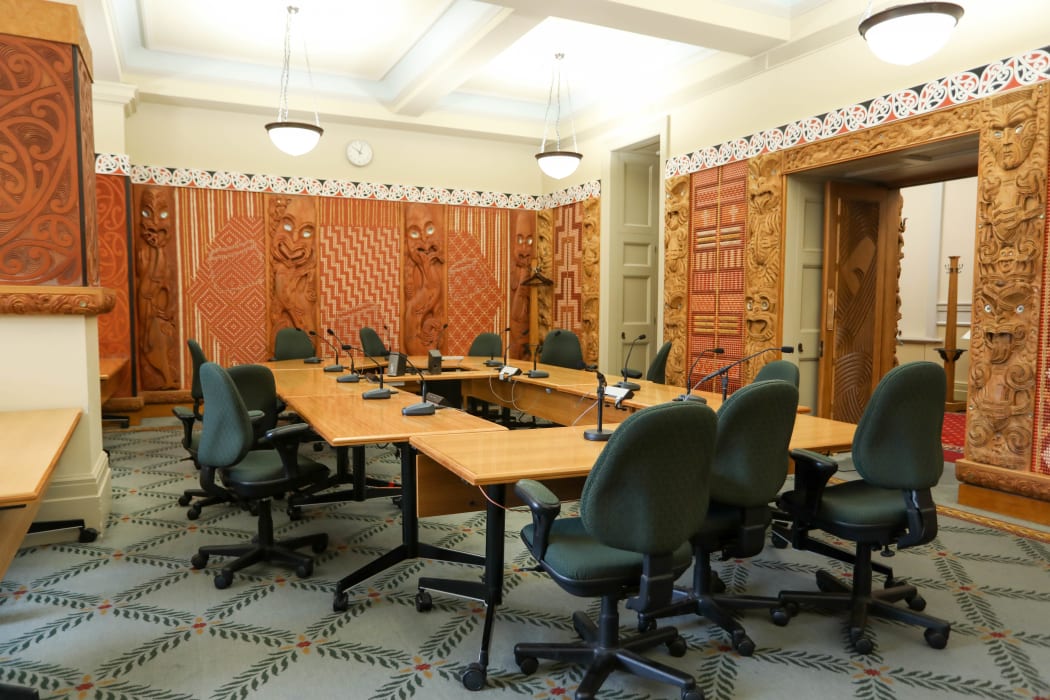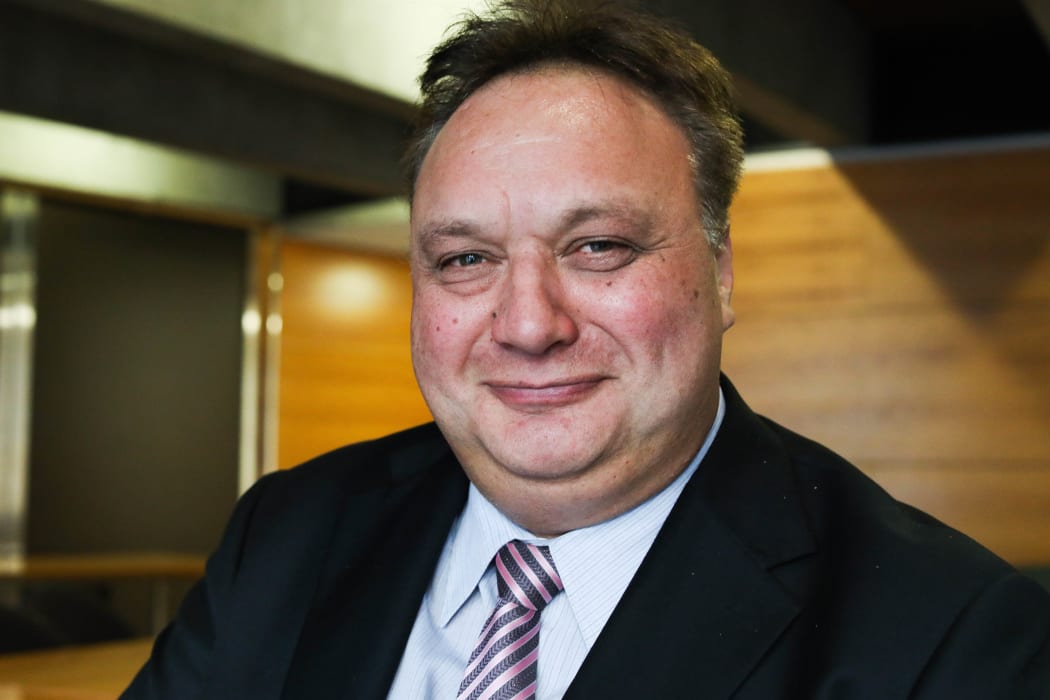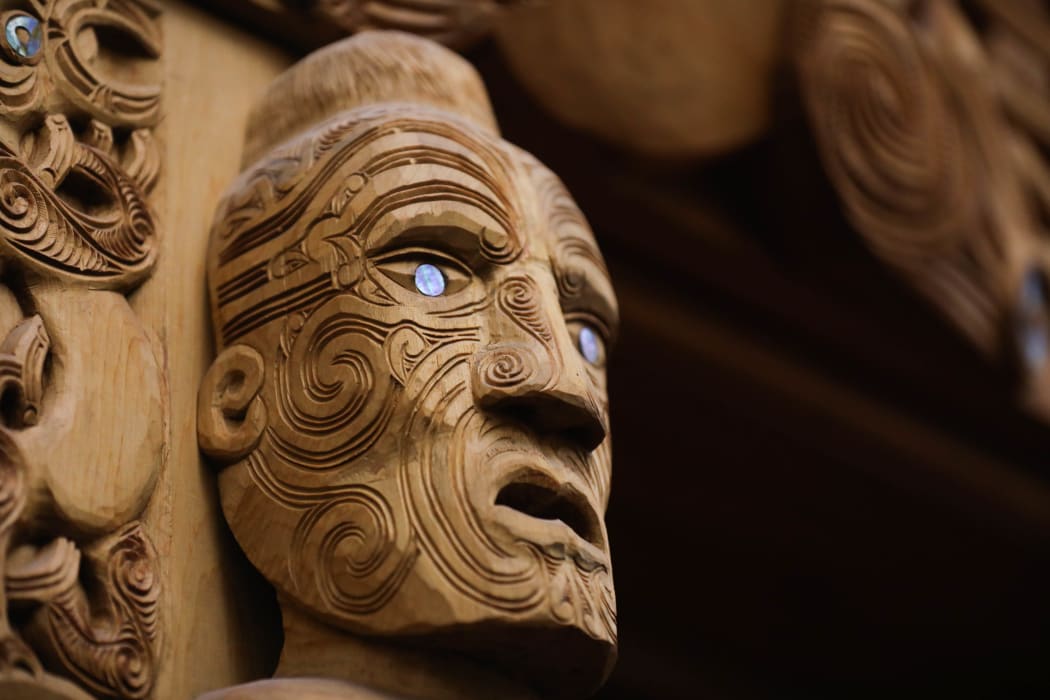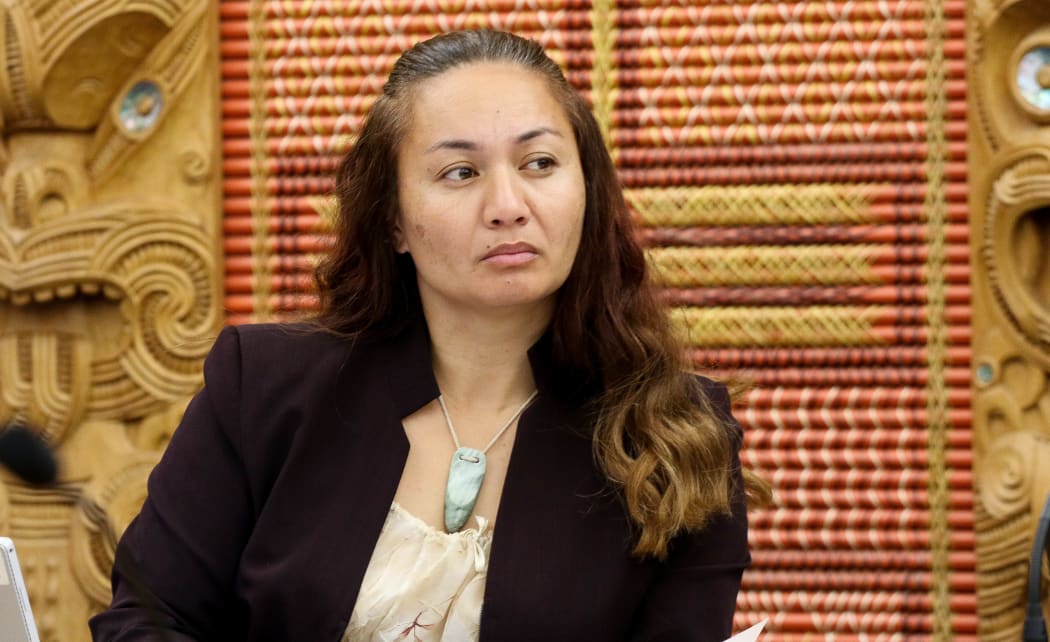Select committees do a lot of the grunt-work at Parliament, most of which goes unnoticed. Daniela Maoate-Cox asks some of the committee chairs to share their highlights from the year.

The Māori Affairs select committee room at Parliament. Select committees are groups of MPs from various parties which gather to consider legislation or petitions, hear from the public and conduct inquiries. Photo: VNP / Daniela Maoate-Cox
A lot of "melting Maori moments" have been had at the Māori Affairs Select Committee says its chair, Labour MP Rino Tirikatene.
Select committees often travel away from Parliament to make it easier for the public to have their say.
"We are travelling, we are visiting the hau kāinga whether it's in Hawke's Bay, up in Ōhākune, Pātea, Tamaki. We do the mahi but it's also about sharing those occasions with the hau kāinga and we've had lots of what I call melting Māori moments," said Mr Tirikatene.

Labour MP Rino Tirikatene is chair of the Māori Affairs Select Committee Photo: VNP / Daniela Maoate-Cox
"It might be just a kōrero, it might be just the utterance of a waiata spontaneously breaking forth, those sorts of things are such special moments that it really is a privilege for us to be able to share in those."
A major part of the committee's work is on treaty settlement bills.
Settlement bills aim to resolve historical claims by Māori against the Crown for breaches of Te Tiriti o Waitangi / the Treaty of Waitangi before 1992.
In a nutshell, the Treaty, which was signed in 1840, gave sovereignty to the British Crown, allowed Māori to keep rangatiratanga (chieftainship) over their resources while giving the Crown first dibs on any land up for sale, and granted Māori the same rights as British citizens.
Settlements include some redress to set things right which can be cultural, commercial, or financial. Once a settlement is reached it becomes law.

The entrance to the Maori Affairs Select Committee room at Parliament Photo: VNP / Daniela Maoate-Cox
"We do a lot of work as the Māori Affairs committee on treaty settlements, they're always very historic and it's a privilege to be involved in the parliamentary stages of such significant pieces of legislation so they always stand out for me," Mr Tirikatene said.
Deputy chair and co-leader of the Green Party Marama Davidson said meeting people outside of parliament helps keep MPs connected to the public.
"I love it when we're in their rohe, on their marae, in their community, it's more accessible for the real grassroots of the people and community to come," she said.
"As select committee members we're also still human even though we're politicians and so seeing people, hearing their mamae, and their celebration and having their stories put to our faces has a real impact on us as human beings as well and it makes all the difference.
"The Māori Affairs select committee genuinely works to make the best legislation we possibly can for those people."

Deputy chair of the Māori Affairs select committee and Green Party co-leader Marama Davidson. Photo: VNP / Phil Smith
As well as treaty settlements the committee has also had numerous briefings on different topics including Māori broadcasters like Māori television and Māori radio. It also joined with the Health Committee to look at the aim for Aotearoa New Zealand to be smokefree by 2025.
"That's another aspect of something that we've done which is quite innovative I guess, having two committees working together," said Mr Tirikatene.
An inquiry into access to and management of tūpāpaku (the body of the deceased) has influenced an amendment to the Coroners Act proving a select committee can have real legislative impact said Ms Davidson.
"We heard from whānau and frontline workers, pathologists, coroners, Māori traditional workers with tūpāpaku about how difficult it can be for Māori to manage and access tūpāpaku, getting tūpāpaku back from Australia, what it's like trying to access tūpāpaku from coroners and so on and so forth," she said.
The Coroners (Access to Body of Dead Person) Amendment Bill bill requires coroners to consider tikanga Māori and the practice of other cultures when deciding whether a family member can stay with a body.
"That's a rewarding part of seeing the work that's been laid down and being able to make a meaningful difference through legislation," said Mr Tirikatene.
Ms Davidson said it's important for people to remember that the committee exists to lobby government.
"We need to be seen as another arm that does not belong to any one party or even the government, we are an independent committee to lobby even our own ministers for changes."
The Māori Affairs committee has asserted itself as a committee of the Parliament said Mr Tirikatene.
'We haven't really had too much of the political interventions that might happen at other committees. I think we really are working together as a committee to ensure we can advance the interests of Māori."
The collaborative nature of the committee stems from the tikanga processes the committee upholds said Ms Davidson.
"We share kai, and often other committee members are a bit jealous, a bit pūhaehae, when they come to us and find out the spreads that we put on for each other.
"So we have this tikanga, we start and end our sessions with karakia, I think that's why we are collaborative."
The Māori Affairs Select Committee often has sessions open for members of the public to sit in on which can be found through Parliament's website here.


